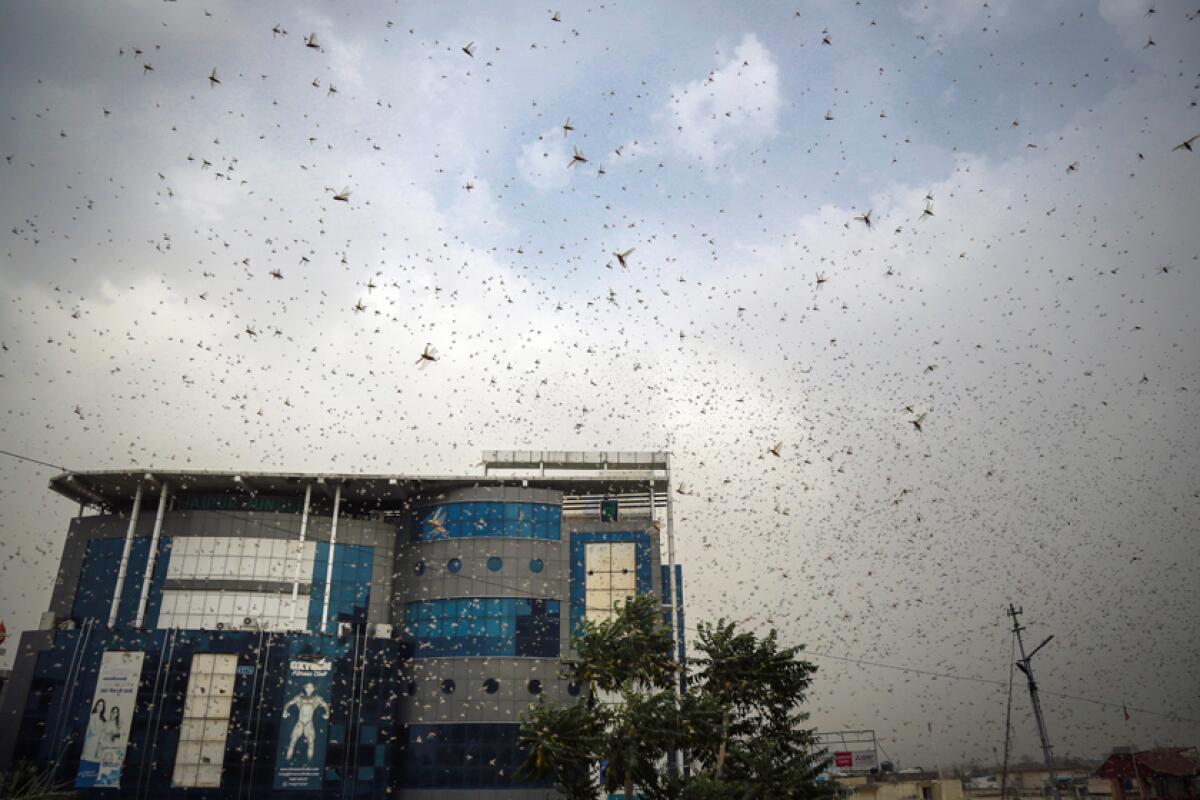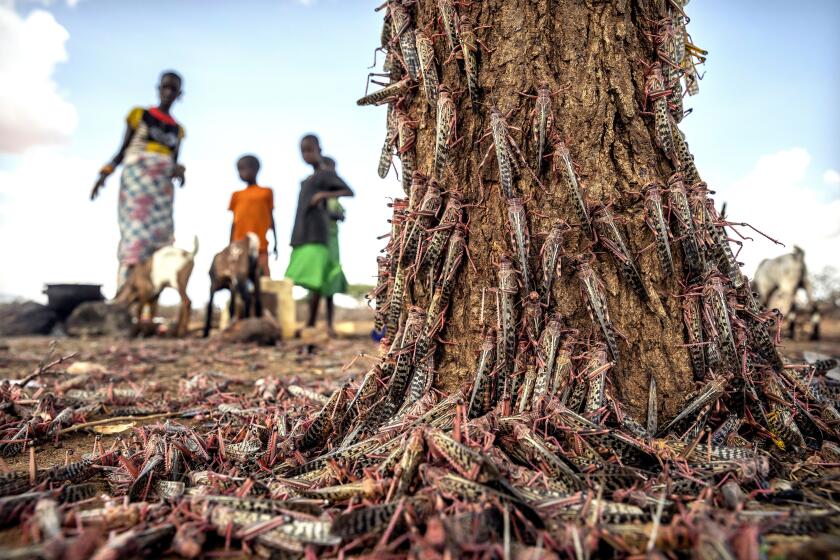Swarms of desert locusts threaten India’s summer crops

NEW DELHI — An invasion by swarms of desert locusts has devastated crops in India’s heartland, threatening an already vulnerable region that is struggling with the economic cost of coronavirus lockdown.
The situation has been particularly grim in central India’s Rajasthan, where millions of locusts have been attacking crops since April. The insects are now appearing in locations where they had not been previously sighted, nibbling their way across farmlands in Punjab, Madhya Pradesh and Gujarat states, too.
Authorities estimate the insects have engulfed more than 123,500 acres of agricultural land in seven of India’s heartland states. The sudden outbreak has prompted them to use vehicle-mounted sprayers, pesticides and drones to stop the infestation.
“It is an alarming situation,” said KL Gurjar, a top official of India’s Locust Warning Organization. “But we are more worried of their breeding. If that happens, it could be devastating for our farmlands.”
Gurjar said India has not seen locust swarms on this scale since 1993 and the numbers of the fast-breeding insects could grow immensely before drier weather curbs their spread. He said higher than normal temperatures this year have helped locusts spread more rapidly and if not controlled, they can badly hurt India’s food supplies.
Exasperated farmers have been banging plates, whistling or throwing stones to try to drive the locusts away, and sometimes even lighting fires to smoke them out.
But many just watch in frustration.
“These insects are giving us sleepless nights. We are more worried about them than the virus,” said Mandeep Singh, who spent hours Tuesday trying to chase away the locusts from his cotton farm in Punjab.
Worried farmers say that while rabi crops that were sown in winter were harvested in the spring, locusts can still damage the cotton crop and vegetables sown in April.
Already hit by the biggest locust outbreak in decades, parts of East Africa brace for an even larger swarm. Fighting it risks spreading coronavirus.
Experts warn that authorities will have to stop locusts from breeding before the monsoon season starts to ensure that they do not end up devouring summer crops and aggravate an already burgeoning agrarian crisis that hit India after a countrywide lockdown that started in late March.
Locust attacks have already devastated pastures and crops in Africa. In February this year, the Food and Agriculture Organization of the United Nations had warned about locusts attacks that could jeopardize farmlands across southwest Asia, including western India.
Experts say the current swarm that has entered India originated in the Horn of Africa and had another round of breeding in neighboring Pakistan.
More to Read
Sign up for Essential California
The most important California stories and recommendations in your inbox every morning.
You may occasionally receive promotional content from the Los Angeles Times.










